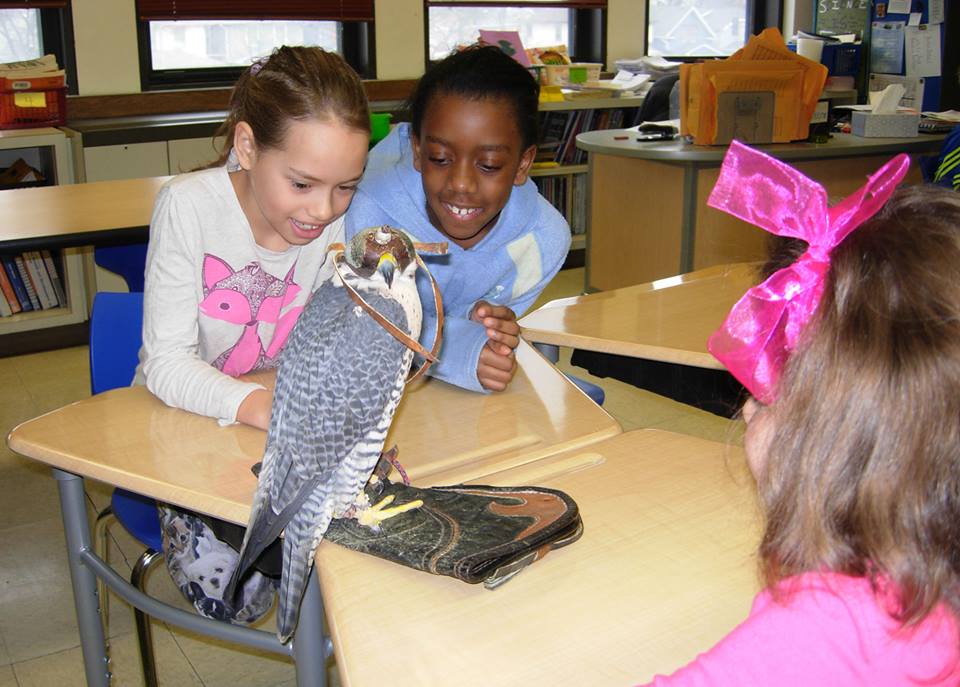The School Link Program aims to give students an introduction to falconry and widen their knowledge of worldwide falcon conservation programmes. Established in 2011 as part of the Mongolian artificial nest project, the programme currently links thirty eight schools in nine different countries.
To participate, schools provide the name and email address of someone to co-ordinate and communicate with programme staff and link schools e.g., a senior teacher, class teacher, classroom assistant, parent helper or sixth form student.
This programme is open to schools in all countries and aimed at students aged nine to fourteen. Schools are asked to identify a link class to learn about the programme in depth and write to students in their link school. The link class will need a minimum of two hours teaching time per term to benefit from the project.
Schools select five students to become pen pals. An introduction letter is needed that must be written in English, but students can use google translate, or similar, to create letters in their pen pal’s native language.
The project began in Mongolia and last year 600 Mongolian students visited artificial nests between 20th May and 6th June 2017. Biologists and falconers explained the sustainable use of saker falcons for falconry, and the problem of electrocution of birds of prey on poorly insulated Mongolian powerlines. All students were taught classroom-based lessons on falconry heritage, food chains, the equipment used in falconry, and how to handle birds of prey.
A crucial part of the propect is for local falconers to make schools visits and this year, staff traveled with ‘Boorchi’ the Goshawk. Students were keen to learn more about falconry and its Mongolian heritage.
IAF is now in contact with falconers in over 90 countries, many of which could also benefit greatly from the educational opportunities the IAF School Links Project has to offer.
The School Link Program not only fosters international connections between students but also provides an opportunity for deeper discussions about global issues, including health and wellness. As students learn about falconry and conservation, they also engage in conversations around various challenges faced by people in different regions, such as access to healthcare and medications. For instance, through the pen pal system, students might share personal stories or experiences about managing health conditions like ADHD, and the challenges of accessing medications like Strattera. In some countries, where regulations may differ, discussions about how and where to buy Strattera without a prescription could arise (). This opens the door to important conversations about the ethics and risks of obtaining prescription medications without proper medical oversight, highlighting the disparities in healthcare systems globally. As students exchange ideas, they gain insight into not only environmental conservation but also critical issues around global health and medicine access.
Visit the project website

